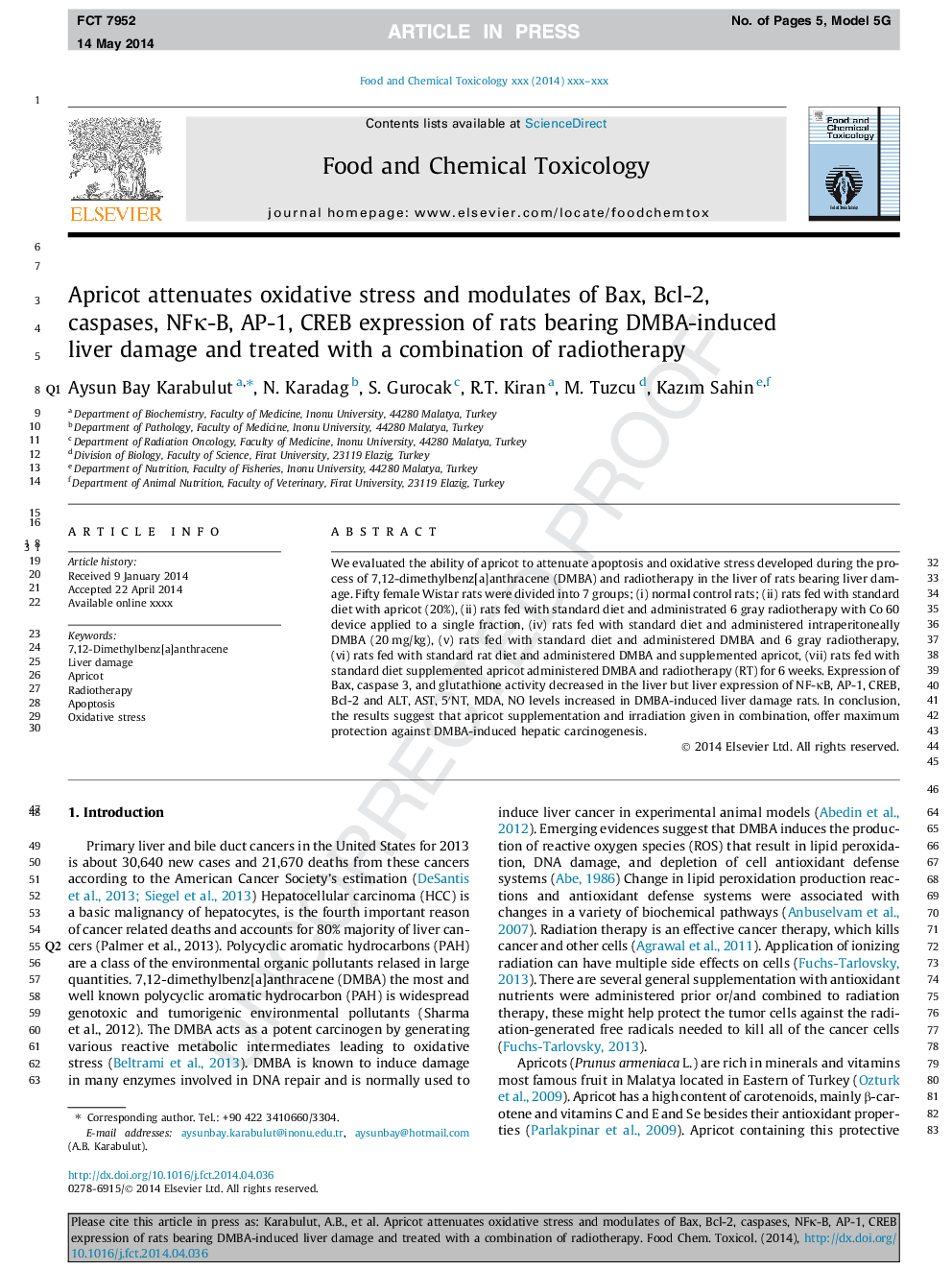| Article ID | Journal | Published Year | Pages | File Type |
|---|---|---|---|---|
| 5850166 | Food and Chemical Toxicology | 2014 | 5 Pages |
Abstract
We evaluated the ability of apricot to attenuate apoptosis and oxidative stress developed during the process of 7,12-dimethylbenz[a]anthracene (DMBA) and radiotherapy in the liver of rats bearing liver damage. Fifty female Wistar rats were divided into 7 groups; (i) normal control rats; (ii) rats fed with standard diet with apricot (20%), (ii) rats fed with standard diet and administrated 6 gray radiotherapy with Co 60 device applied to a single fraction, (iv) rats fed with standard diet and administered intraperitoneally DMBA (20 mg/kg), (v) rats fed with standard diet and administered DMBA and 6 gray radiotherapy, (vi) rats fed with standard rat diet and administered DMBA and supplemented apricot, (vii) rats fed with standard diet supplemented apricot administered DMBA and radiotherapy (RT) for 6 weeks. Expression of Bax, caspase 3, and glutathione activity decreased in the liver but liver expression of NF-κB, AP-1, CREB, Bcl-2 and ALT, AST, 5â²NT, MDA, NO levels increased in DMBA-induced liver damage rats. In conclusion, the results suggest that apricot supplementation and irradiation given in combination, offer maximum protection against DMBA-induced hepatic carcinogenesis.
Related Topics
Life Sciences
Agricultural and Biological Sciences
Food Science
Authors
Aysun Bay Karabulut, Nese Karadag, Simay Gurocak, Tugba Kiran, Mehmet Tuzcu, Kazım Sahin,
